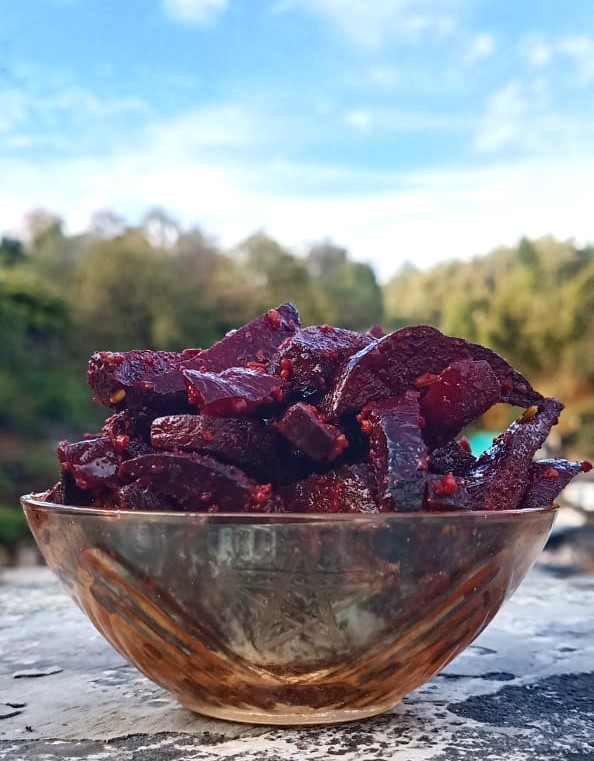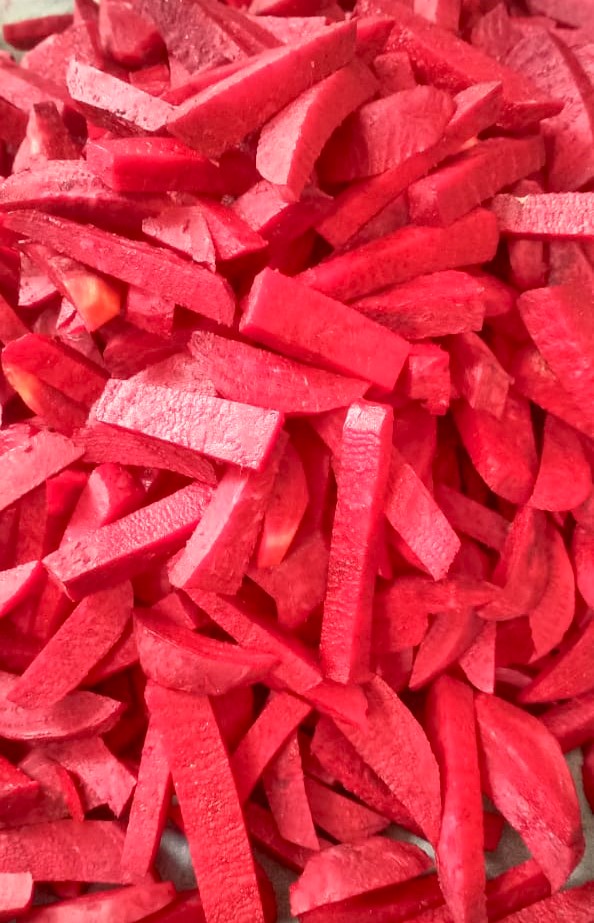
Quinoa vs Rice Showdown: Unlocking the Secrets of Your Favorite Grains
Introduction:
Imagine this: you’re standing in the grocery aisle, confronted by an array of grain options, your hand hovering between two of the most popular choices in the health food world – quinoa and rice. On one side, there’s the ancient, mystical quinoa, hailed as a modern-day superfood; on the other, the timeless rice, a staple in countless cultures around the globe. This decision isn’t just about choosing a side dish; it’s about understanding the secrets behind these nutritional powerhouses and how they fit into your lifestyle.
Welcome to the ultimate showdown between quinoa and rice. You’ve probably heard the buzz around these grains – perhaps whispers of quinoa’s impressive protein profile or rice’s comforting versatility. But what really lies beneath these claims? How do these grains stack up in terms of nutrition, health benefits, culinary uses, and more?
In this post, we’re delving deep into the world of quinoa and rice. We’ll explore their origins, unravel their nutritional mysteries, and compare their benefits and drawbacks. Whether you’re a fitness enthusiast, a health-conscious parent, or simply someone curious about making better dietary choices, this guide promises to illuminate the path to understanding these popular grains.
So, grab your favorite bowl and prepare to embark on a journey through history, nutrition, and culinary delight as we pit quinoa against rice in a battle of grains. By the end of this post, not only will you be equipped to make an informed choice in that grocery aisle, but you’ll also be inspired to experiment with these grains in your kitchen adventures.
Quinoa Unveiled: A Seed of Ancient Wonders
Quinoa, pronounced ‘keen-wah,’ may seem like a contemporary health trend, but its roots run deep into history. Originating from the Andean region of South America, quinoa was a staple for the ancient Incas, revered as the “mother of all grains.” Contrary to popular belief, quinoa is technically not a grain but a seed from the Chenopodium quinoa plant, a relative of beets and spinach.
What sets quinoa apart in the health food realm? It’s a nutritional powerhouse, a true rarity in the plant kingdom. Quinoa is one of the few plant-based foods offering a complete protein, meaning it contains all nine essential amino acids. These amino acids are the building blocks of protein, crucial for muscle repair, immune function, and overall health.
But the wonders of quinoa don’t stop at protein. Each tiny seed is packed with dietary fiber, promoting digestive health and satiety. It’s also an excellent source of vitamins and minerals, including iron, magnesium, potassium, and calcium, essential for a range of bodily functions from nerve transmission to bone health.
Beyond nutrition, quinoa’s versatility in the kitchen is unmatched. Its subtle, nutty flavor and fluffy texture make it an ideal base for salads, a hearty addition to soups, or a nutrient-dense replacement for rice in any dish. From breakfast porridges to savory dinner bowls, quinoa adapts to any meal, absorbing flavors while contributing its unique nutritional profile.
Rice Revealed: The Staple Grain of Civilizations
Rice, a familiar staple in kitchens worldwide, carries a legacy that spans across continents and cultures. As a primary food source for over half the world’s population, its importance cannot be overstated. Rice comes from the Oryza sativa plant and is predominantly grown in flooded fields, a unique cultivation method that has shaped landscapes and societies for centuries.
The world of rice is vast and varied. From the aromatic Basmati and Jasmine to the nutritious brown and wild varieties, each type of rice offers a unique culinary experience. White rice, the most common variety, is milled to remove its bran and germ, resulting in a softer, more delicate texture and a longer shelf life. In contrast, brown rice retains its bran and germ, offering a chewier texture and a richer nutrient profile, including B vitamins, minerals, and antioxidants.
Rice’s nutritional contributions are significant, though they vary by type. It’s a good source of carbohydrates, providing the energy needed for daily activities. Brown rice, in particular, shines with its higher fiber content, aiding digestion and contributing to a feeling of fullness.
In the kitchen, rice’s cultural significance is evident. It’s the cornerstone of iconic dishes like Spanish paella, Indian biryani, and Japanese sushi. Rice’s ability to pair with a variety of ingredients makes it a global culinary chameleon.
The Nutritional Face-Off: Quinoa vs. Rice
When it comes to nutritional value, quinoa and rice are like two sides of the same coin, each offering its unique benefits. Let’s dive into a detailed comparison:
- Protein Powerhouse: Quinoa’s Edge
- Quinoa stands out as a complete protein source, offering about 8 grams of protein per cup. This makes it a go-to option for vegetarians, vegans, and anyone looking to boost their protein intake without relying on meat.
- Rice, particularly white rice, falls short in this category, offering around 4 grams of protein per cup. Brown rice fares slightly better but still doesn’t match quinoa’s protein prowess.
- Carbohydrates and Fiber: A Tale of Two Textures
- Quinoa contains a higher fiber content, around 5 grams per cup, contributing to better digestion and prolonged satiety. This high fiber content also means quinoa has a lower glycemic index, making it a favorable choice for blood sugar management.
- Rice, especially white rice, has a higher carbohydrate content but significantly lower fiber. Brown rice offers more fiber than white rice, yet still less than quinoa. Its higher glycemic index makes it less ideal for those managing blood sugar levels.
- Vitamins and Minerals: The Micro-Nutrient Match
- Quinoa is rich in vitamins like folate and minerals such as magnesium, iron, and zinc, making it a nutrient-dense choice for anyone’s diet.
- Brown Rice holds its ground with a good supply of B vitamins, manganese, selenium, and some iron. However, it doesn’t quite reach the levels of quinoa.
- Gluten-Free and Gut Health
- Both quinoa and rice are naturally gluten-free, making them excellent choices for those with celiac disease or gluten sensitivity.
- Quinoa’s high fiber content supports gut health more effectively than rice, promoting healthy digestion and potentially aiding in the prevention of gastrointestinal diseases.
- Caloric Consideration
- Calorically, quinoa and rice are comparable. Quinoa contains slightly more calories per cup, but this is balanced by its higher nutrient density and protein content.
Culinary Creativity: Diverse Dishes for Every Diet
Quinoa and rice aren’t just about nutrition; they’re also culinary stars. Their ability to blend seamlessly into a variety of dishes makes them favorites in kitchens worldwide.
- Quinoa shines in recipes where its nutty flavor and fluffy texture can be showcased. It’s perfect in salads, as a stuffing for vegetables, or even as a base for sweet dishes like breakfast porridges. Quinoa’s quick cooking time and ability to absorb flavors make it a versatile and convenient choice.
- Rice, with its various types, offers a spectrum of culinary uses. White rice is a staple in dishes like sushi and risotto, where its stickiness and delicate flavor are essential. Brown rice, with its nuttier taste and firmer texture, is excellent in heartier dishes like casseroles and grain bowls.
Ethical and Environmental Considerations
In our quest to eat healthily, it’s also important to consider the impact of our food choices on the environment. Quinoa, primarily grown in South America, has faced challenges with increased demand leading to concerns over sustainable farming practices. Conversely, rice cultivation, especially in Asian countries, has significant environmental impacts due to water usage and methane emissions from rice paddies.
Health Impacts: Digging Deeper into Quinoa and Rice
While we’ve touched on the basic nutritional differences between quinoa and rice, understanding their health impacts requires a deeper dive.
- Digestive Health and Weight Management
- Quinoa, with its higher fiber content, is excellent for digestive health. Fiber aids in regular bowel movements and can help prevent constipation. Additionally, the satiating nature of fiber contributes to weight management by reducing overall calorie intake.
- Brown Rice also offers digestive benefits due to its fiber content, though to a lesser degree than quinoa. It can be a good option for those looking to increase their fiber intake without switching to quinoa.
- Heart Health and Cholesterol
- The fiber in quinoa can also play a role in heart health by helping to lower cholesterol levels. The presence of heart-healthy fats, like monounsaturated and omega-3 fatty acids, further bolsters its cardiovascular benefits.
- Brown Rice has been linked to improved heart health too. Its nutrient profile, including fiber, magnesium, and antioxidants, can contribute to lower cholesterol levels and reduced risk of heart disease.
- Blood Sugar Control and Diabetes Management
- The low glycemic index of quinoa makes it a beneficial choice for individuals with diabetes. Its slow-release carbohydrates help in maintaining steady blood sugar levels.
- Rice, particularly white rice, has a higher glycemic index, which might not be ideal for blood sugar control. Brown rice is a better option than white rice for those concerned about glycemic impact, but quinoa remains superior in this aspect.
- Nutrient Absorption and Antioxidant Benefits
- Quinoa is a source of antioxidants like quercetin and kaempferol, known for their anti-inflammatory, antiviral, and anticancer properties. These antioxidants, coupled with its rich mineral content, make quinoa a strong contender in promoting overall health.
- While Rice does not have as high an antioxidant content as quinoa, brown rice still offers some level of antioxidants, particularly in its bran layer.
Practical Considerations: Cost, Accessibility, and Preparation
When incorporating quinoa or rice into your diet, practical factors like cost, accessibility, and ease of preparation come into play.
- Quinoa tends to be more expensive than rice, which might affect its accessibility and regular use in household cooking. Its preparation is straightforward, similar to cooking rice, making it an easy substitute.
- Rice is generally more affordable and widely available. Its familiarity and ease of cooking make it a staple in many diets worldwide.
Balancing Taste, Tradition, and Nutrition
Ultimately, the choice between quinoa and rice often boils down to personal preference, taste, and cultural culinary traditions. Quinoa offers a unique, slightly nutty flavor and a fluffy texture, making it appealing to those looking for variety in their grains. Rice, with its comfort food status and versatility, continues to be a beloved staple in many traditional cuisines.
Conclusion: Harmonizing Health with Culinary Delights
In conclusion, both quinoa and rice have their unique places in a balanced diet. Quinoa’s superior protein and nutrient profile make it an excellent choice for those seeking a nutrient-dense, plant-based protein source. Meanwhile, rice, particularly in its brown and wild varieties, remains a versatile and comforting staple, providing essential carbohydrates and fitting seamlessly into a variety of dishes.
As we navigate our food choices, it’s important to remember that variety is key to a healthy diet. Whether you lean towards quinoa’s nutrient-packed profile or rice’s comforting simplicity, incorporating both into your diet can provide a harmonious balance of health benefits and culinary enjoyment.
FAQs
- What is the main nutritional difference between quinoa and rice?
- Quinoa is a complete protein source, containing all nine essential amino acids, and is higher in fiber. Rice, particularly brown rice, is a good carbohydrate source but lacks the complete protein profile of quinoa.
- Is quinoa a better option for weight loss than rice?
- Quinoa might be slightly more beneficial for weight loss due to its higher fiber and protein content, which can promote fullness and reduce overall calorie intake.
- Can people with diabetes eat quinoa and rice?
- Yes, people with diabetes can eat both, but quinoa is preferred due to its lower glycemic index, which has less impact on blood sugar levels compared to rice, especially white rice.
- Are quinoa and rice gluten-free?
- Both quinoa and rice are naturally gluten-free, making them suitable for people with celiac disease or gluten sensitivity.
- How do quinoa and rice impact heart health?
- Quinoa can help lower cholesterol levels due to its high fiber content and presence of heart-healthy fats. Brown rice also supports heart health with its fiber and nutrient content, though to a lesser extent than quinoa.
- What are some creative ways to cook with quinoa and rice?
- Quinoa can be used in salads, soups, or as a rice substitute in any dish. Rice is versatile in dishes like sushi, stir-fries, and as a base in grain bowls.
- Is quinoa more expensive than rice?
- Generally, quinoa is more expensive than rice, which may affect its regular use in household cooking.
- Can quinoa replace rice in all recipes?
- While quinoa can replace rice in many recipes, the final texture and taste will differ. Quinoa’s nutty flavor and fluffy texture offer a unique culinary experience.
- Which is better for the environment, quinoa or rice?
- Both have environmental impacts; quinoa farming faces sustainability challenges, while rice cultivation can have significant water usage and methane emissions.
- Do quinoa and rice have any health risks?
- Brown rice can contain higher levels of arsenic, so it’s recommended to vary your grain intake. Quinoa should be rinsed before cooking to remove its natural coating, which can cause digestive upset.
Blog Tags: Quinoa, Rice, Nutrition Comparison, Healthy Eating, Gluten-Free, Diabetes Friendly, Heart Health, Culinary Uses, Environmental Impact, Dietary Choices














